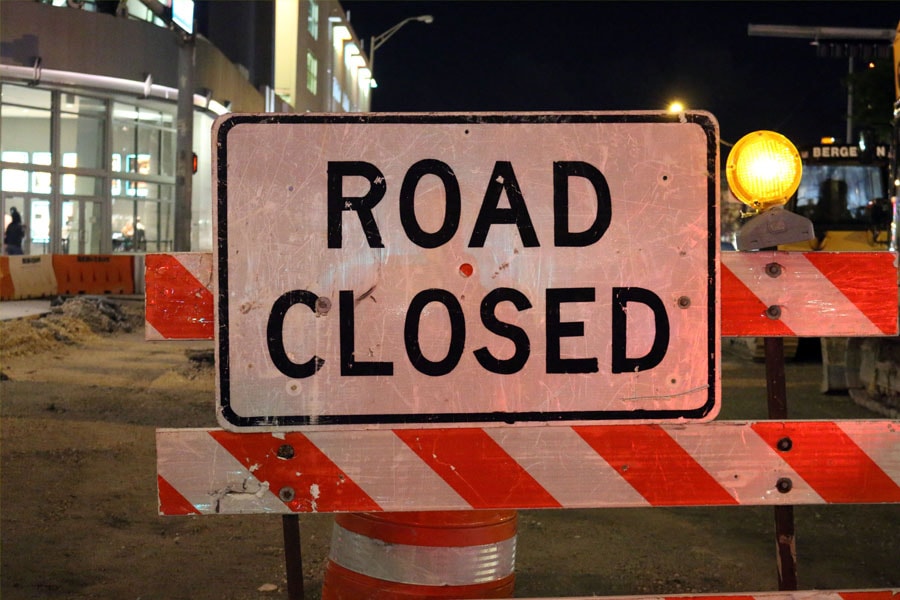
Smarter Cities Start Underground
Heinz College students say coordination among public utilities could save millions of dollars
By Scottie Barsotti
Media Inquiries- Heinz College of Information Systems and Public Policy
- 412-268-5492
Students from Carnegie Mellon University’s Heinz College of Information Systems and Public Policy have built a new system to facilitate better coordination among public utility companies during construction projects.
Students in the Master of Science in Public Policy & Management program worked with the City of Pittsburgh to create a platform that digitally maps Pittsburgh’s infrastructure underground. The map could save millions of dollars each year by leading to greater efficiency and long-term planning.
The capstone project team included Meghan Clark, Muhammad Osama Mansoor, Stephen Munchel, Aiswariya Raja Prasanna Kumar, Benjamin Silliman and Yiwen Yu.
The project, “Creating the Pittsburgh Smart Data Utility,” was advised by Anna J. Siefken, associate director for innovation and strategic partnerships at Carnegie Mellon’s Wilton E. Scott Institute for Energy Innovation, in partnership with the City of Pittsburgh's Chief Resilience Officer Grant Ervin. Siefken said the analytical depth of knowledge and cross-function of the Heinz College team made them uniquely able to approach the issue.
“Rather than thinking of it as just an engineering problem, or a data science or computer science problem, they saw it as a people problem,” she said. “This really took an understanding of what would influence people [with different perspectives] to move in the right direction.”
Digging into permitting data from 2014-2018, the student team found that over one-sixth of street openings during that period could have been coordinated, which could have resulted in potential costs savings as well as shortened construction time and limited environmental impacts.
“Rather than thinking of it as just an engineering problem, or a data science or computer science problem, they saw it as a people problem." — Anna Siefken
Lee Haller, a 1998 Heinz College graduate with a master’s degree in public policy and management and director of innovation and performance for the City of Pittsburgh, said due to the age of Pittsburgh’s infrastructure there is an urgent need as well as a chance for collaboration.
“[The city and public utilities] have a huge opportunity to work jointly at this exact moment when we all have mutual Interests in making sure our limited budgets are stretched as far as they possibly can be,” Haller said.
Construction coordination can be difficult because of a variety of issues. The Heinz College team extensively researched the issue and offered three key goals that, taken together, would constitute a “Smart Data Utility” for the City of Pittsburgh. The goals are:
- Create a digital, 3D underground infrastructure map;
- Facilitate short-term and long-term construction coordination; and
- Collect and share smart meter data.
Some major hurdles stand in the way of accomplishing these goals. Utility companies have different policies and capabilities when sharing data is concerned, and regulations add complexity at every step.
To make their case, the student team conducted an analysis of related efforts in the cities of Chicago, Baltimore and Amsterdam, as well as the state of Texas to see what insights might apply to Pittsburgh.
In Chicago, for example, the team learned of a crowd-sourced platform that aims to create a 3D digital blueprint of the entire city. Whenever a street is opened up, the crews onsite send images and data to the city’s system. The 3D map has cut down on accidents and it saves anywhere from four to 14 months in the engineering and design phases of construction projects.
“If you had a three-dimensional underground map in Pittsburgh, like we saw in Chicago, there are opportunities to implement predictive analytics,” Siefken said. “You could come closer to understanding when things might break, and it’s typically less expensive to repair a pipe that’s about to rupture than a pipe that has broken.
“Coordination of efforts would pay off dividends in the end,” she said.
The students’ implementation plan for the Smart Data Utility calls for the deployment of smart meters to help optimize the electrical grid, giving consumers more visibility into their energy use while improving the ability to collect, aggregate and share data. That data would further enable improved project coordination.
Residents have the most to gain from such cooperation from not only a cost perspective, but quality of life. Haller refers to a massive coordinated effort between the city, Peoples Gas and Pittsburgh Water and Sewer Authority a few years ago in Pittsburgh’s Lawrenceville neighborhood.
“Because all of that work was concentrated at one time, all the water lines were replaced, all the gas lines were replaced, and all the streets were repaved at one time rather than having that be spread over multiple years and multiple disruptions,” he said.